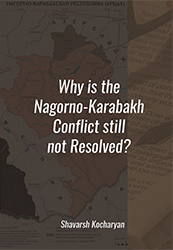Armenian Prime Minister Nikol Pashinyan’s Speech at the Joint Security Council Meeting in Stepanakert
[…]
I would like to underscore that, for us, Artsakh’s engagement in the negotiation process is not a whim or even a precondition, but a statement of the fact that Artsakh’s engagement in the settlement of the Nagorno-Karabakh conflict is of pivotal importance.
This position reflects our respect not only for the people of Artsakh and its rights, but also all our partners involved in the negotiation process, because we are truly interested in achieving an exclusively peaceful settlement of the conflict, and we believe in the negotiation process, the efficiency of which is a top priority for us, and as I have already mentioned, the issue related to the efficiency of the negotiation process is of pivotal importance.
read more








